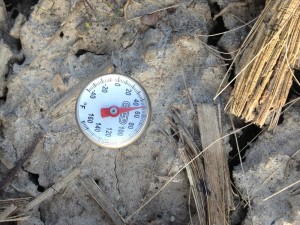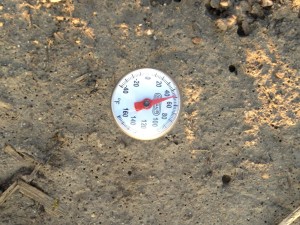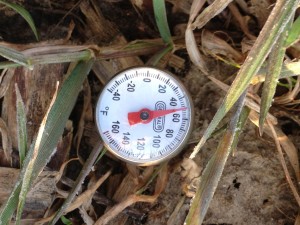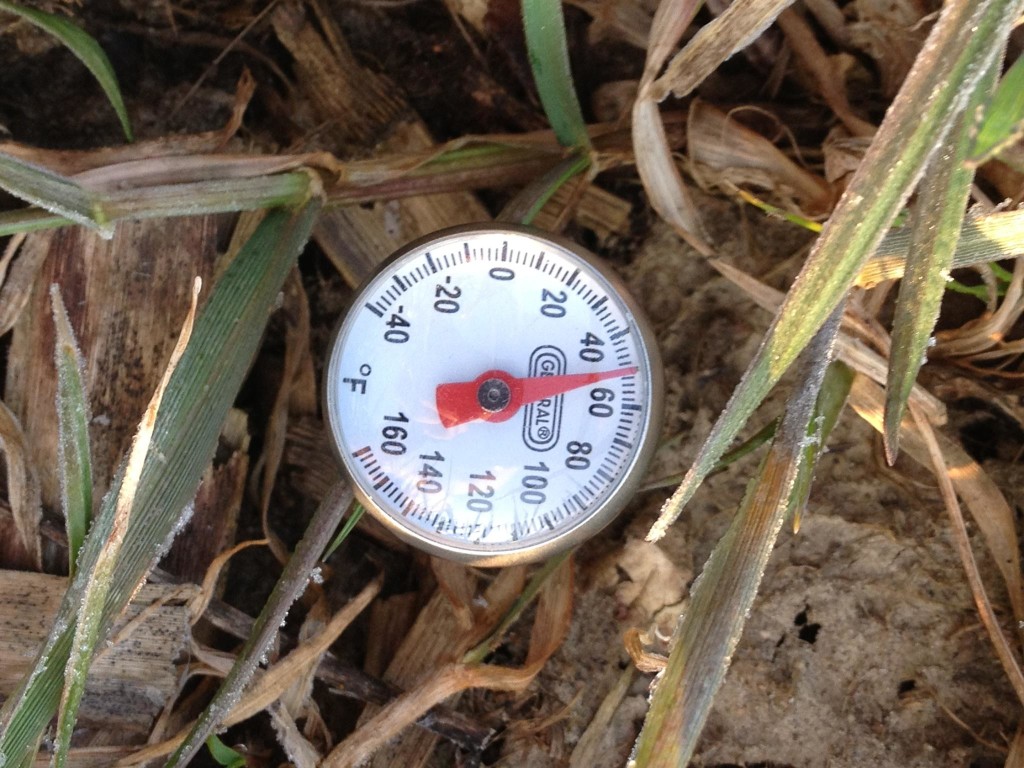Fact or Fiction? Cover Crops that Survive the Winter Keep the Soil Colder in the Spring than Fall-Tilled Soil – Part 2
On Friday April 5, 2013 my brother Don recorded the temperatures in soils on our home farm near Greenwood, IN (central Indiana). The previous week Don took soil temperatures coming out of a colder than normal March. The results showed very similar temperatures in soils at approximately 4″ deep in fall tilled soil, long term no-till soil, and soil covered with an annual ryegrass cover crop.
April 2013 is off to a chilly start in central Indiana
The first week of April saw chilly day and nighttime temperatures in the area. The average daytime temperature was 53.5 degrees (normal is 58.71 degrees) and the nighttime temperatures were 30.8 (average 38.29 degrees). The soil temperatures gained a few degrees in each area.
Soil temperatures did increase during the week
While the soils are not warm enough to plant corn in yet they are getting closer. No one in the area has started any planting yet but the soil temperature readings show that all of the soils tested are getting close to being warm enough to make sure the planter is ready and seed is in the shed ready to go to the fields.
Don’s observations
- The long-term No-till area had the most surface soil moisture (not wet but definitely quite moist)
- The fall tilled soil was crusted over and had cracks in the soil
- The soil covered with Annual Ryegrass was not “wet” and it had no cracks in the soil
- Don told me that he heard from Barry Fisher at a recent cover crop field day that soil biology starts becoming active at around 38 degrees soil temperature. Each of the soils are well above that temperature.
- During the next testing session Don will also be testing for soil moisture and taking some earthworm counts in each of the soils.




Soil temp 47 degrees here today (north east Indiana).
Hi Chuck! Was that in cover crop ground or your no-till ground?